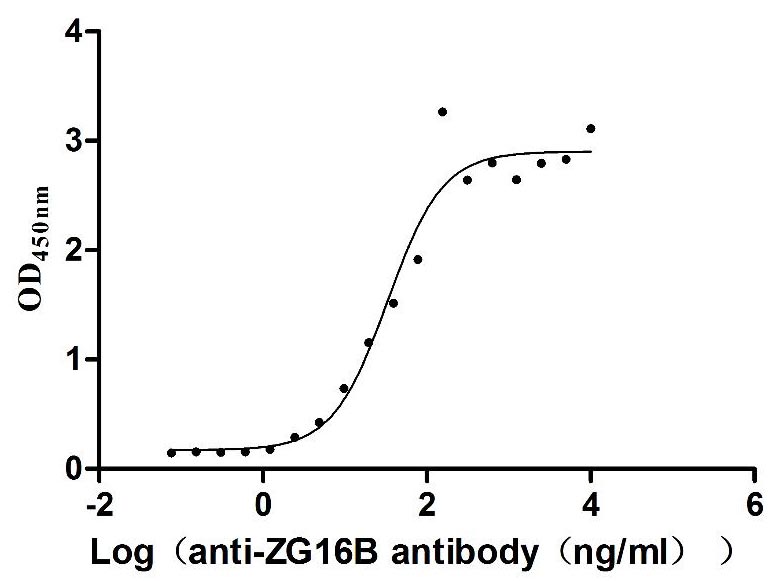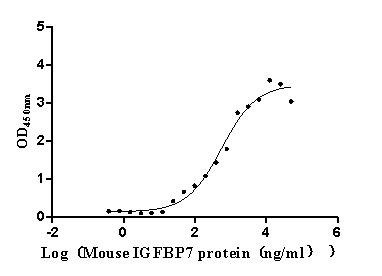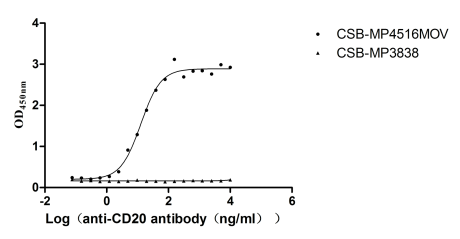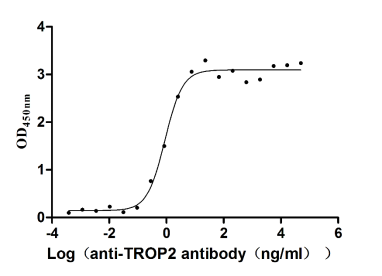Recombinant Human Chorion-specific transcription factor GCMa (GCM1)
-
中文名称:人GCM1重组蛋白
-
货号:CSB-YP868270HU
-
规格:
-
来源:Yeast
-
其他:
-
中文名称:人GCM1重组蛋白
-
货号:CSB-EP868270HU
-
规格:
-
来源:E.coli
-
其他:
-
中文名称:人GCM1重组蛋白
-
货号:CSB-EP868270HU-B
-
规格:
-
来源:E.coli
-
共轭:Avi-tag Biotinylated
E. coli biotin ligase (BirA) is highly specific in covalently attaching biotin to the 15 amino acid AviTag peptide. This recombinant protein was biotinylated in vivo by AviTag-BirA technology, which method is BriA catalyzes amide linkage between the biotin and the specific lysine of the AviTag.
-
其他:
-
中文名称:人GCM1重组蛋白
-
货号:CSB-BP868270HU
-
规格:
-
来源:Baculovirus
-
其他:
-
中文名称:人GCM1重组蛋白
-
货号:CSB-MP868270HU
-
规格:
-
来源:Mammalian cell
-
其他:
产品详情
-
纯度:>85% (SDS-PAGE)
-
基因名:GCM1
-
Uniprot No.:
-
别名:Chorion specific transcription factor GCMa; Chorion-specific transcription factor GCMa; GCM 1; GCM A; GCM motif protein 1; Gcm1; GCM1_HUMAN; Gcm1rs1; GCMA; Gcmrs2; Glial cells missing homolog 1; Glial cells missing homolog a; Glide; hGCMa
-
种属:Homo sapiens (Human)
-
蛋白长度:full length protein
-
表达区域:1-436
-
氨基酸序列MEPDDFDSED KEILSWDIND VKLPQNVKKT DWFQEWPDSY AKHIYSSEDK NAQRHLSSWA MRNTNNHNSR ILKKSCLGVV VCGRDCLAEE GRKIYLRPAI CDKARQKQQR KRCPNCDGPL KLIPCRGHGG FPVTNFWRHD GRFIFFQSKG EHDHPKPETK LEAEARRAMK KVNTAPSSVS LSLKGSTETR SLPGETQSQG SLPLTWSFQE GVQLPGSYSG HLIANTPQQN SLNDCFSFSK SYGLGGITDL TDQTSTVDPM KLYEKRKLSS SRTYSSGDLL PPSASGVYSD HGDLQAWSKN AALGRNHLAD NCYSNYPFPL TSWPCSFSPS QNSSEPFYQQ LPLEPPAAKT GCPPLWPNPA GNLYEEKVHV DFNSYVQSPA YHSPQEDPFL FTYASHPHQQ YSLPSKSSKW DFEEEMTYLG LDHCNNDMLL NLCPLR
-
蛋白标签:Tag type will be determined during the manufacturing process.
The tag type will be determined during production process. If you have specified tag type, please tell us and we will develop the specified tag preferentially. -
产品提供形式:Lyophilized powder
Note: We will preferentially ship the format that we have in stock, however, if you have any special requirement for the format, please remark your requirement when placing the order, we will prepare according to your demand. -
复溶:We recommend that this vial be briefly centrifuged prior to opening to bring the contents to the bottom. Please reconstitute protein in deionized sterile water to a concentration of 0.1-1.0 mg/mL.We recommend to add 5-50% of glycerol (final concentration) and aliquot for long-term storage at -20℃/-80℃. Our default final concentration of glycerol is 50%. Customers could use it as reference.
-
储存条件:Store at -20°C/-80°C upon receipt, aliquoting is necessary for mutiple use. Avoid repeated freeze-thaw cycles.
-
保质期:The shelf life is related to many factors, storage state, buffer ingredients, storage temperature and the stability of the protein itself.
Generally, the shelf life of liquid form is 6 months at -20°C/-80°C. The shelf life of lyophilized form is 12 months at -20°C/-80°C. -
货期:Delivery time may differ from different purchasing way or location, please kindly consult your local distributors for specific delivery time.Note: All of our proteins are default shipped with normal blue ice packs, if you request to ship with dry ice, please communicate with us in advance and extra fees will be charged.
-
注意事项:Repeated freezing and thawing is not recommended. Store working aliquots at 4°C for up to one week.
-
Datasheet :Please contact us to get it.
相关产品
靶点详情
-
功能:Transcription factor involved in the control of expression of placental growth factor (PGF) and other placenta-specific genes. Binds to the trophoblast-specific element 2 (TSE2) of the aromatase gene enhancer. Binds to the SYDE1 promoter. Has a central role in mediating the differentiation of trophoblast cells along both the villous and extravillous pathways in placental development.
-
基因功能参考文献:
- our studies demonstrate that DLX3 physically interacts with GCM1 and inhibits its transactivation activity, suggesting that DLX3 and GCM1 may form a complex to functionally regulate placental cell function through modulation of target gene expression. PMID: 28515447
- results suggest that p45 NF-E2 negatively regulates differentiation and apoptosis activation of human syncytiotrophoblast by modulating GCM1 acetylation and sumoylation. PMID: 28383551
- Identify a novel cis-acting sequence (-369 to -320) at the placental growth factor promoter, which was critical for mediating the basal and DLX3/GCM1-dependent PGF promoter activities. PMID: 27996093
- Twist1 may promote trophoblast syncytialization by regulating the expression of GCM1. PMID: 26992674
- GATA3 knockdown elevated HtrA4 expression in BeWo and JEG-3 trophoblast cell lines and enhanced the invasion activities of both lines. This study uncovered a new GATA3 function in placenta as a negative regulator of GCM1 activity and trophoblastic invasion. PMID: 26899996
- GLI2 stabilized glial cell missing-a, a pivotal transcriptional factor for trophoblastic syncytialization. PMID: 26769961
- reveals a positive feedback loop between glial cells missing 1 and Human chorionic gonadotropin regulating placental hCGbeta expression and cell differentiation PMID: 26503785
- Results suggest that caspase-14 may interact with GCM1 to participate in syncytiotrophoblast differentiation during placental development. PMID: 23580611
- study reveals a novel function for RACK1 to regulate GCM1 activity and placental cell migration and invasion PMID: 23651062
- GCM1-directed villous trophoblast differentiation is repressed by DREAM PMID: 23300953
- c-Myc-regulated members of the miR-17~92 and miR-106a~363 clusters inhibit trophoblast differentiation by repressing GCM1 and CYP19A1. PMID: 23438603
- Phorbol 12-myristate 13-acetate-induced protein kinase C and mitogen-activated protein kinase kinase/extracellular signal regulated kinase dependent pathway enhances the degradation as well as the transcriptional activity of GCMa. PMID: 22975632
- study reveals a novel function of GCM1 and HtrA4 in regulation of trophoblast invasion and that abnormal HrtA4 expression may contribute to shallow trophoblast invasion in preeclampsia PMID: 22778138
- Data show that beta-catenin/BCL9-Like (BCL9L)/T-cell factor 4 (TCF4) signalling directly targets the GCM1/syncytin pathway and thereby regulates the fusion of human choriocarcinoma cells. PMID: 22109522
- results support a role for reduced placental Gcm1 expression as a causative factor in defective syncytiotrophoblast differentiation and maternal and placental phenotypes in preeclampsia in humans. PMID: 22275534
- these data demonstrate for the first time that GCMa is phosphorylated by the PKC- and MEK/extracellular signal-regulated kinase (ERK)-dependent mechanism, and that this phosphorylation is involved in its degradation process. PMID: 22206674
- CD9 increases GCM1 expression via the cAMP/PKA signaling pathway, resulting in the increase in ERVWE1 expression. PMID: 19692500
- Our study has identi fi ed a novel cAMP/Epac1/CaMKI/GCM1 signaling cascade that stimulates trophoblast fusion through promoting GCM1 phosphorylation and desumoylation. PMID: 21791615
- TIMP4 is a downstream target of GCM1. PMID: 21406447
- Our results suggest that GCM1 is a critical factor in controlling placental cell fusion through transcriptional regulation of syncytin 2 and MFSD2A gene expression in placenta. PMID: 20484742
- The researchers found evidence that GCM1 is a potential susceptibility or marker gene for IGA nephropathy. PMID: 19890582
- GCMa regulates the syncytin-mediated trophoblastic fusion in human cells PMID: 12397062
- Results suggest that GCM1 is a distinct transcription factor involved in placental disease and altered expression of the GCM1 gene may contribute to the etiology of pre-eclampsia. PMID: 15081636
- GCM1 transcription factor expression is regulated both at the transcriptional and translational level and these studies show that the general features of GCM1 mRNA and protein expression in the human placenta are conserved with the mouse PMID: 15135239
- the SCF(hFBW2) E3 complex has a key role in targeting hGCMa to the ubiquitin-proteasome degradation system PMID: 15640526
- GCMa-driven syncytin expression is the key mechanism for syncytiotrophoblast formation PMID: 16004993
- GCMa acetylation is mediated by CBP, which stimulates GCMa transcriptional activity through cyclic AMP/protein kinase A signaling PMID: 16166624
- Results suggests that histone deacetylase 3 can functionally attenuate the CBP-upregulated GCMa activity in the activated signaling pathway leading to placental cell fusion. PMID: 16528103
- Plasma placenta-specific 1 and GCM1 mRNAs appear promising as noninvasively measurable molecular markers for pre-eclampsia PMID: 16594548
- GCMa is a new sumoylation substrate and its activity is down-regulated by sumoylation. PMID: 17646165
- Ther is a functional role for GCM1 contributing to constitutively high trophoblast PGF expression and is the first direct evidence of an oxygen-responsive, trophoblast-specific transcription factor contributing to the regulation of PGF expression. PMID: 18160678
- A central role for GCM1 protein in mediating the differentiation of trophoblast cells along both the villous and extravillous pathways in human placental development. PMID: 19219068
- Severe hypoxia is associated with reduced GCMa and syncytin-1 transcripts and altered fusion of primary trophoblasts. PMID: 19321927
显示更多
收起更多
-
亚细胞定位:Nucleus.
-
组织特异性:Highly expressed in the placenta. Expressed in trophoblast cells of the villi.
-
数据库链接:
Most popular with customers
-
Recombinant Human Leukocyte surface antigen CD47 (CD47), partial (Active)
Express system: Mammalian cell
Species: Homo sapiens (Human)
-
Recombinant Human Pro-neuregulin-1, membrane-bound isoform (NRG1), partial (Active)
Express system: Mammalian cell
Species: Homo sapiens (Human)
-
Recombinant Human E3 ubiquitin-protein ligase ZNRF3 (ZNRF3), partial (Active)
Express system: Mammalian cell
Species: Homo sapiens (Human)
-
Recombinant Human C-X-C chemokine receptor type 4 (CXCR4)-VLPs (Active)
Express system: Mammalian cell
Species: Homo sapiens (Human)
-
Recombinant Human Pancreatic adenocarcinoma up-regulated factor (ZG16B) (Active)
Express system: Mammalian cell
Species: Homo sapiens (Human)
-
Recombinant Mouse Complement component C1q receptor (Cd93), partial (Active)
Express system: Mammalian cell
Species: Mus musculus (Mouse)
-
Recombinant Macaca fascicularis Membrane spanning 4-domains A1 (MS4A1)-VLPs (Active)
Express system: Mammalian cell
Species: Macaca fascicularis (Crab-eating macaque) (Cynomolgus monkey)
-
Recombinant Human Tumor-associated calcium signal transducer 2 (TACSTD2), partial (Active)
Express system: Mammalian cell
Species: Homo sapiens (Human)


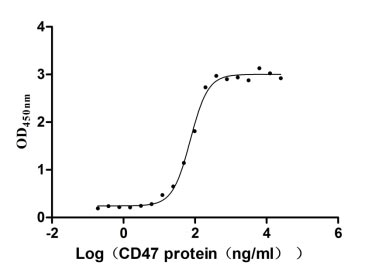
-AC1.jpg)
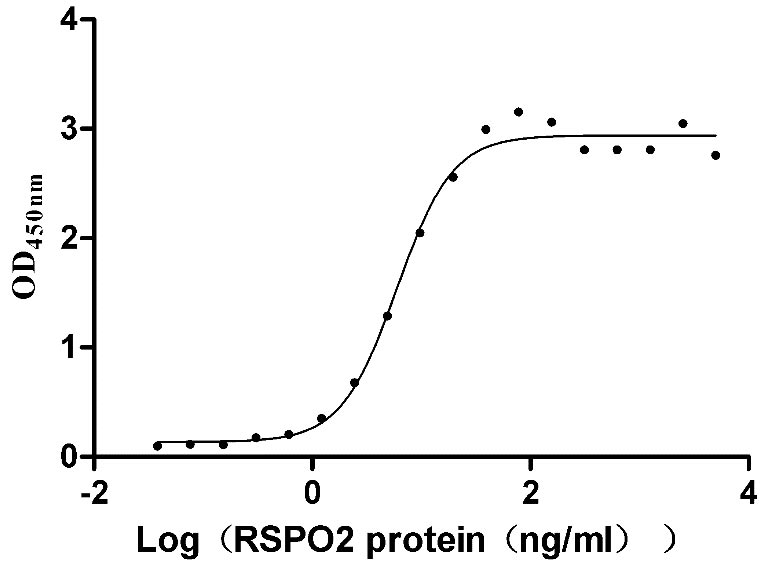
-AC1.jpg)
